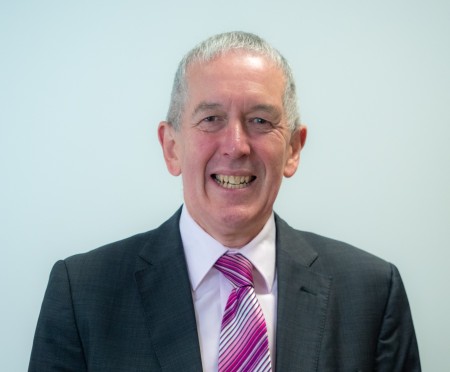Publish date: 26 October 2023
Non-executive director Richard Dale explains his role and why he got involved
NHS boards play a key role in shaping the strategy, vision and purpose, hold the organisation to account for the delivery of strategy, and ensure value for money. The board is also responsible for assuring that risks to a trust and the public are managed and mitigated effectively. Led by an independent chair and composed of a mixture of executive and independent non-executive directors, the board has a collective responsibility for the trust’s performance.
Here, one of Northumbria’s non-executive directors,
My career background is 40 years working in a variety of finance and non-finance roles, but primarily finance. I started in the North East, moved down to London for 20 years, a bit of a time in the US, and then came back to the North East in 2007 to join Newcastle University as its finance director.
I had a great time there and part of the role there was working with the NHS because of the strong relationship there between the university and Newcastle Hospitals through the research they do together. Plus, there was a link to the wider NHS in the region through the medical training provided.
When I retired at the end of 2021, it felt the natural next thing to do to find something to keep me busy in retirement, but also give something back to society. I was very fortunate that the first role that came up was within my own home patch, living in Alnwick in the centre of Northumberland. It was just wonderful to get involved with Northumbria Healthcare.
The recruitment process started in the spring of 2022, and I was appointed from August 1 that year, meaning I celebrated my first year here not that long ago.
In terms of my role as a non-executive director, there are three main areas of work, with the first being as part of the board, setting the strategic direction for the trust. We work as a team, but the non-executives can bring different perspectives to decision-making, have a robust discussion and then reach a view that we are hopefully all happy with. I do think we work well as a team in the trust, the executives and non-executives.
That doesn’t seem naturally to sit well with the statutory role the non-execs have to hold the executives to account, and to ensure that they are doing the right work and getting the right results. However, I think the fact that we work as a team, we respect each other, we are open and honest with each other, makes the holding to account a more natural process, than if we turned up at a meeting and asked difficult questions without any previous understanding.
The third thing we can do is take a step back and see the bigger picture, as we are not involved in the day-to-day operational issues. While we are not uncritical, by taking a step back, often we act as cheerleaders for the trust because there’s so much going on that we should be proud of. This shows in our performance and the satisfaction scores we get from both patients and staff.
My motivation for being a non-exec is partly because I've been very lucky in my career through my education, through the work I've done to get a lot out of life, so it's good for me to be able to give something back to that community.
I also find it genuinely interesting meeting the lovely people around the place, whether that's at the Northumbria Specialist Emergency Care Hospital in Cramlington or the general hospitals, whether it's in the community units, in our offices and other facilities, or out at the rural hospitals. I've had the chance over the past year or so to get around all those sites and meet people. My continual impression is one of care and compassion being the hallmark of people across the trust.
To anybody thinking of becoming a non-exec, I would say it's a great role and you will enjoy it. You will get a lot out of it and the trust will get a lot out of you in return. I cannot think of a better non-executive role. I’ve dealt with companies and public-sector organisations, and I don’t think any of them will have the richness and benefits that being involved with an NHS trust will bring.
You may not naturally think it's your background if you've not worked in the health service, but sometimes being outside of the health service brings as much value as having worked within it. My view is whatever your background, give it a go.
NHS England believes that to make the best possible decisions NHS boards need diverse, inclusive and compassionate leadership. Boards made up of people with a mix of experience and skills gained from a range of backgrounds and lived experience bring fresh ideas, greater challenge and more robust decision-making.
The NHS Leadership Academy explains that there are a huge range of non-executive skills and backgrounds which are tremendously helpful to NHS boards, including traditional skillsets such as finance, legal, corporate governance, HR and OD, clinical and regulatory.
However, many other skills and experience are equally valuable, including IT and digital, housing, property and estate management, strategy and innovation, marketing and customer experience, communications and PR, local government, lived experience as a patient, carer or service user, or a background in representing local communities.
